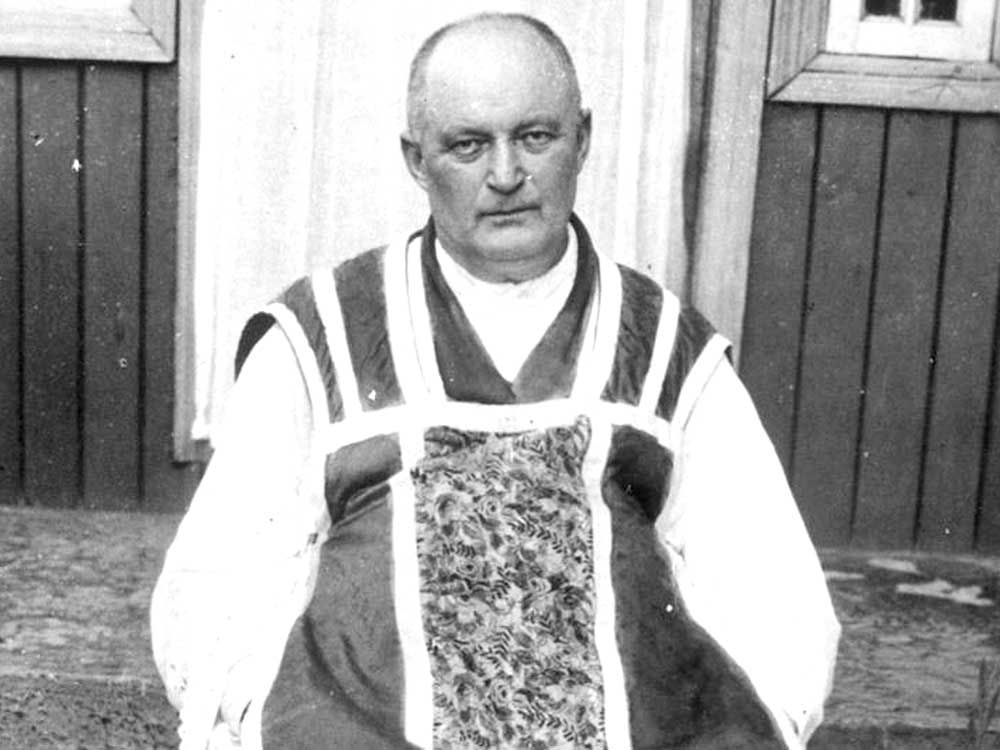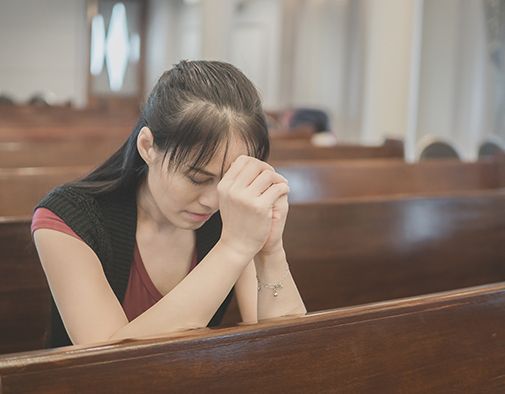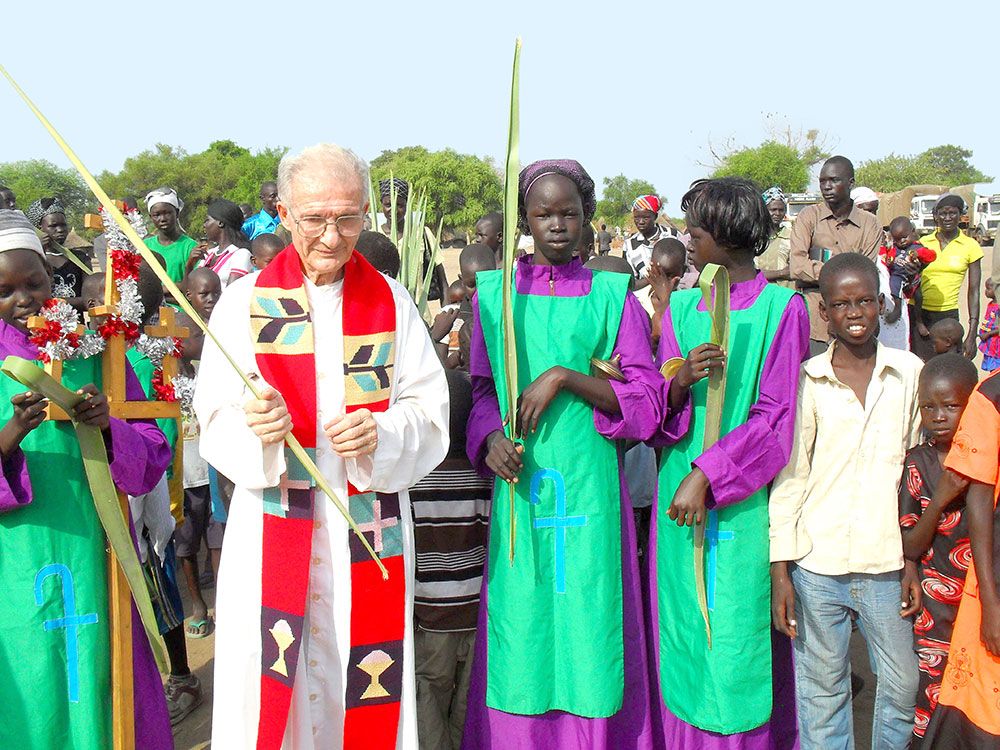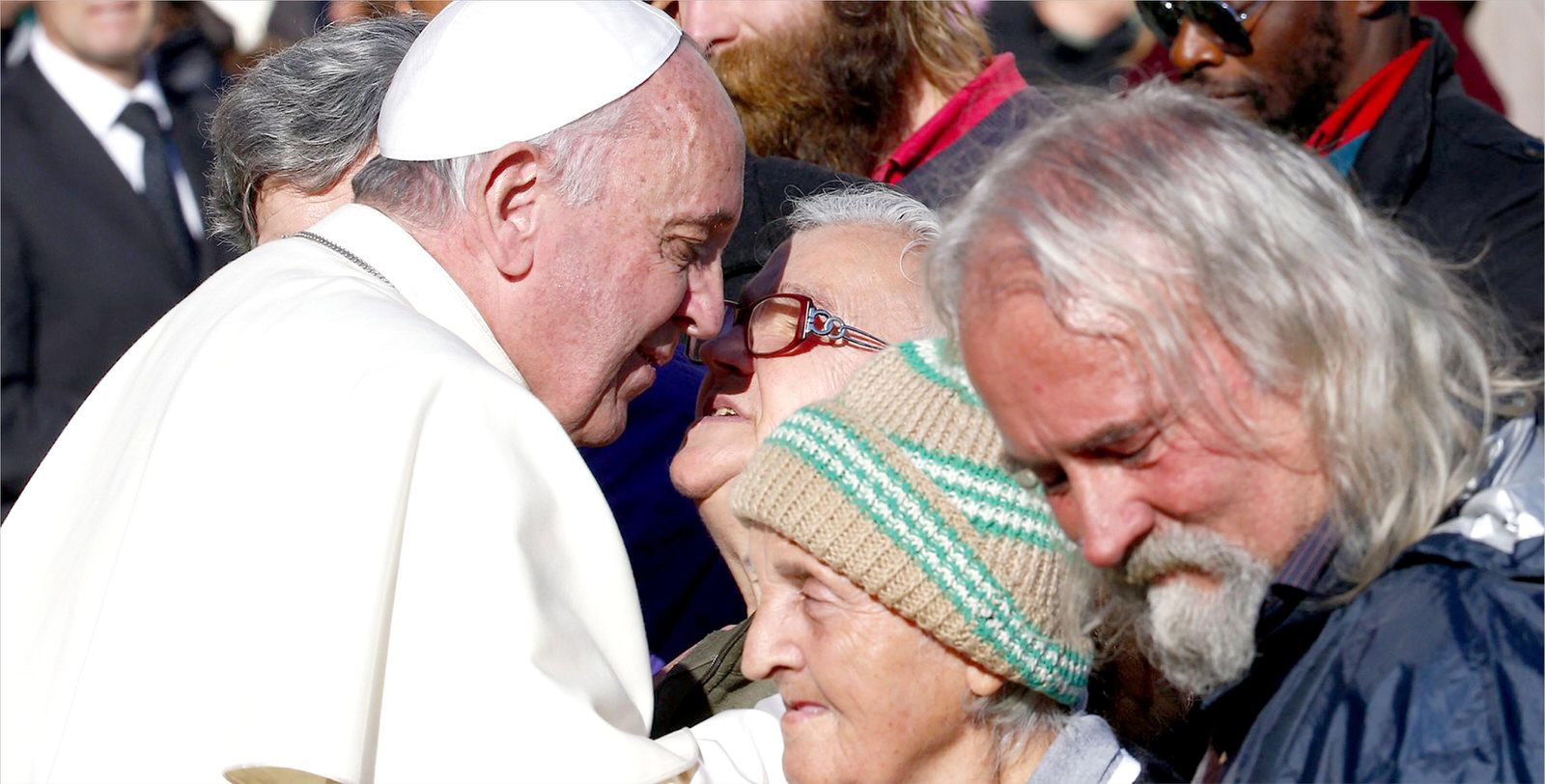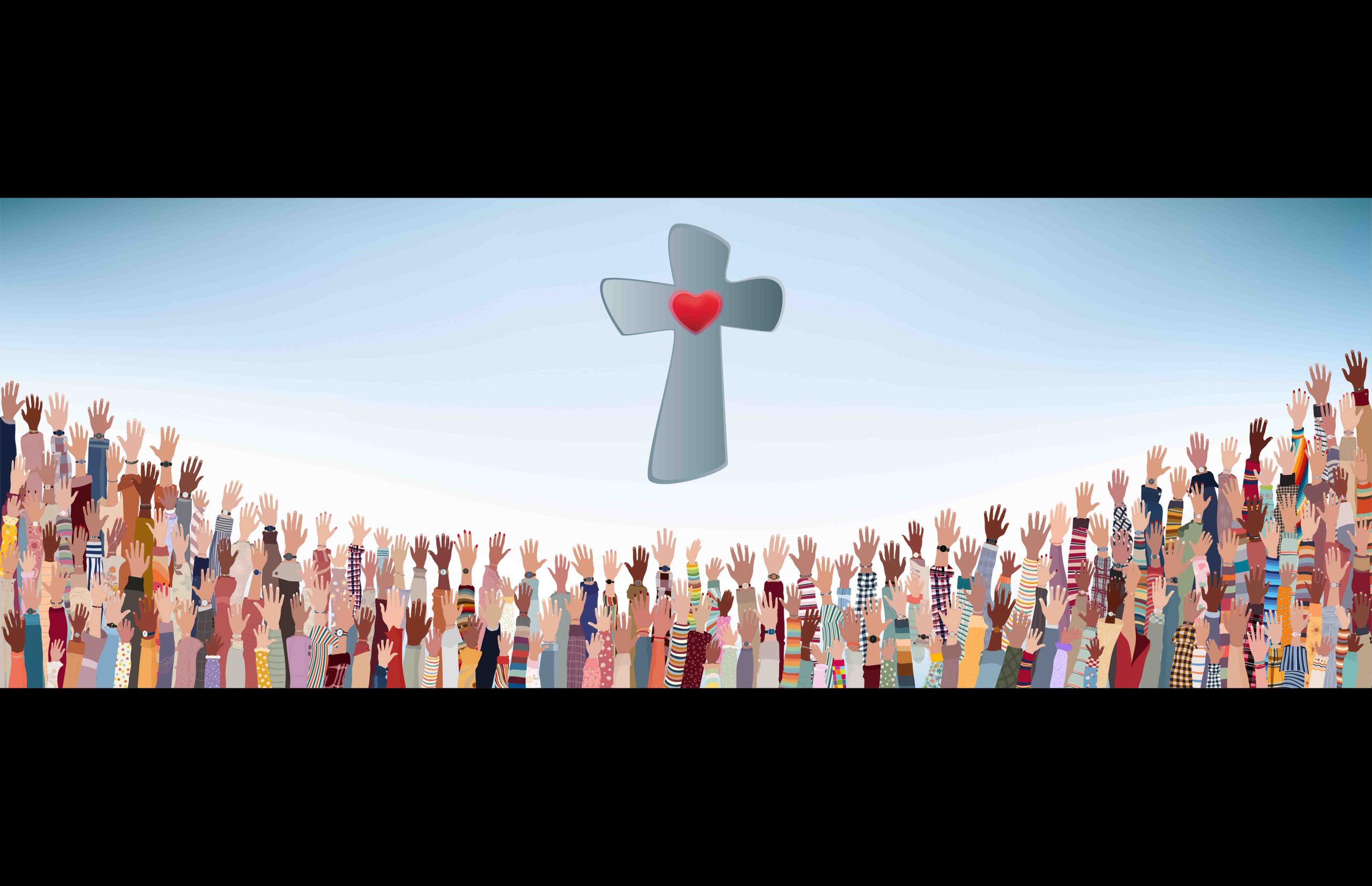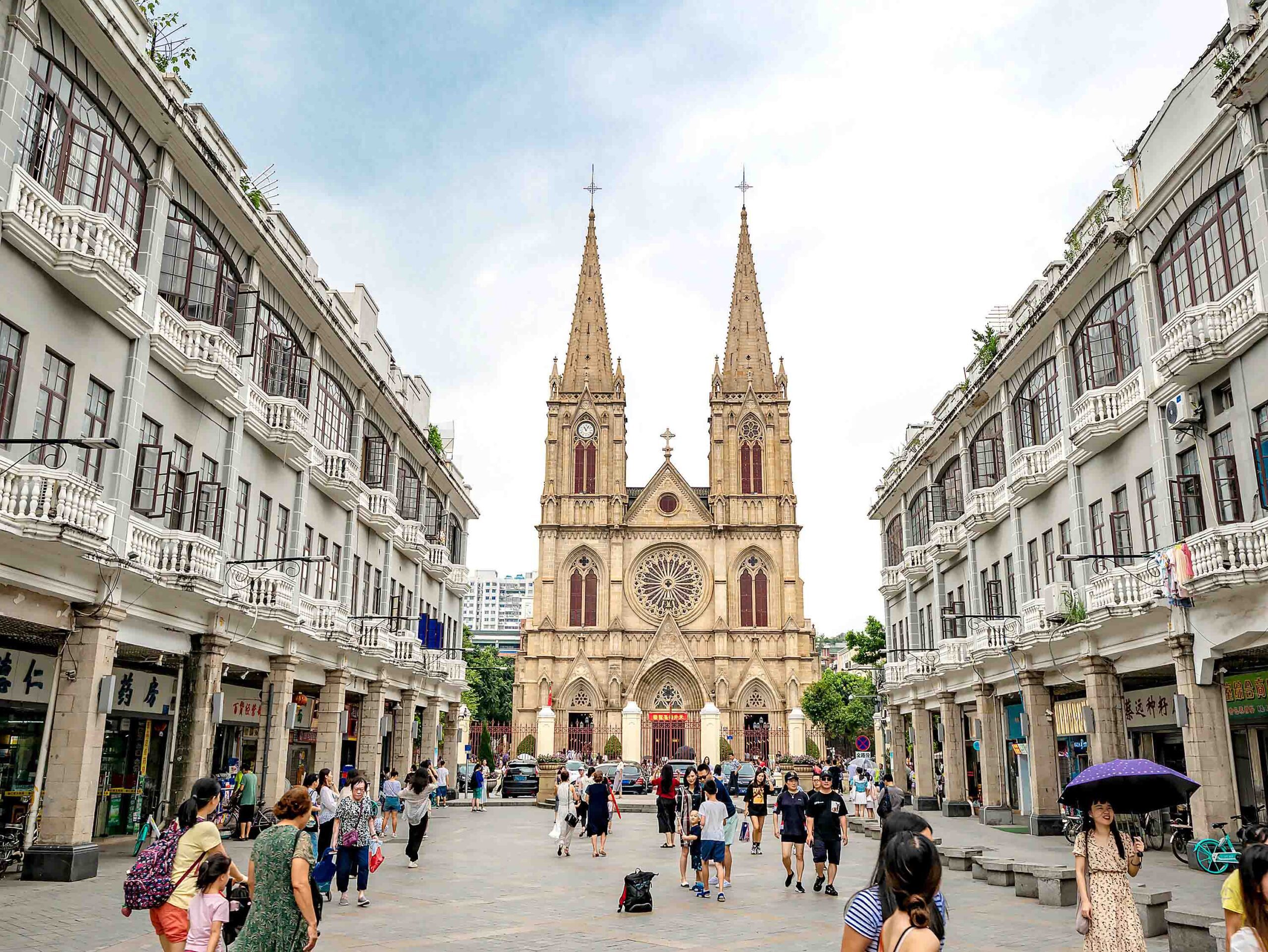During my visit to Al-Azhar, I mentioned that the spirit of the existing collaboration between the Pontifical Council for Interreligious Dialogue and Al-Azhar has always been “ in order to see that the religions play their rightful role in human societies for the promotion of fraternity, solidarity, cooperation, justice and peace, for the resolution of questions touching upon the welfare of humanity as a whole, and in order to fight together against religious fanaticism as an expression of exclusion and a source of hatred, violence and terrorism.”
This historic encounter between Pope Francis and the Grand Imam of Al-Azhar, Ahmad Al-Tayyib, is another step forward in implementing Christian-Muslim Dialogue that comes after the 50th anniversary of the Declaration Nostra Aetate, which is a key document and vision regarding dialogue for the Catholic Church. In these 50 years of promotion of dialogue, popes have been encouraging dialogue with many other religions.
Nowadays, the Holy Father is advocating the “dialogue of friendship” which is neither simplistic, superficial nor a kind of “feel-good” experience. In Evangelii Gaudium, Pope Francis rather states: “Interreligious dialogue is a necessary condition for peace in the world, and so it is a duty of Christians as well as other religious communities” (n. 250). For this calls for a “dialogue that is tenacious, patient, strong and intelligent in which nothing is lost.”
Mutual enrichment
Therefore, dialogue is demanding. In order to dialogue, it requires that you, yourself, must first have an identity. Pope Francis, again in Evangelii Gaudium, points out that “…true openness involves remaining steadfast in one’s deepest convictions, clear and joyful in one’s own identity, while at the same time being ‘open to understanding those of the other party and knowing that dialogue can enrich each side’” (n. 251). Without a well-formed dialogue identity, dialogue would be without purpose or, worse still, harmful and lead to relativism and syncretism.
But how can we, as believers, live this encounter with people of other religions with an open heart and mind? Pope Francis, in his encyclical Lumen Fidei, describes an approach where, “..one who believes may not be presumptuous; on the contrary, truth leads to humility, since believers know that, rather than ourselves possessing truth, it is truth which embraces and possesses us. Far from making us inflexible, the security of faith sets us on a journey; it enables witness and dialogue with all.” (n. 34). Therefore, the one who dialogues participates in spiritual enrichment and a real sharing.
In the October 28, 2015 Audience, Pope Francis said that, “the dialogue that we need, cannot but be open and respectful, and thus prove fruitful. Mutual respect is the condition and, at the same time, the aim of interreligious dialogue: respecting others’ right to life, to physical integrity, to fundamental freedoms, namely freedom of conscience, of thought, of expression and of religion.”
Building bridges
All the teachings of Pope Francis have been a call to build bridges, not walls, to look with mercy upon the lives of others, to have compassion for the poor and to work together for the good of our common home that is Creation. The prospect, then, and the purpose of dialogue is that when there is authentic collaboration between believers, it is possible to work together by actively contributing to the good of all, by fighting against the many injustices which continue to plague this world and, finally and importantly, by condemning all violence.
Let us remember that the ultimate goal of interreligious dialogue, as Pope Francis has taught and witnessed, is truly peace. The many ways to see God and listen to God are reflected in the different religions that exist in the world. We also know that, in all religions of the world, peace is seen as a gift coming from God. Therefore, without a real and sincere dialogue among followers of religions, it will not be possible to achieve peace in the world.
What is the future of dialogue then? Let’s listen once again to the words of Pope Francis: “Dear brothers and sisters, as for the future of interreligious dialogue, the first thing we have to do is pray, and pray for one another: we are brothers and sisters! Without the Lord, nothing is possible; with Him, everything becomes so! May our prayer – each one according to his or her own tradition – adhere fully to the will of God who wants all men and women to recognize they are brothers and sisters and live as such, forming the great human family in the harmony of diversity” (General Audience, October 28, 2015).
In an interview with this magazine, I indicated that: “We must build up awareness that radicalism, with its extremist tendencies, is incompatible with true religious ethics and must be defeated through a serious and widespread formation to dialogue and a genuine effort by religious leaders and opinion makers to identify people who portray false beliefs and behaviors as part of their religious code.”
At the same time, political leaders must support this same awareness around the world in order to prevent extremism in society and to prepare the ground for moderation. This has particular relevance to the present situation in the Middle East, where creating room for dialogue becomes a great opportunity for promoting intercultural and interreligious initiatives that will deal with educational, social, economic and political reforms, religious understanding of women’s issues, peace initiatives, and potential areas of conflict.” (“Pope Francis and Interreligious Dialogue,” World Mission, February 2015).
Freedom of religion
Dialogue, which is rooted in friendship, has the great advantage of being founded in a relationship which is concrete and not merely theoretical in its approach. Friendships are built on the recognition and honoring of religious differences but, at the same time, they bear the need for a mutual respect recognizing the importance of freedom of religion. Thus, instead of building walls of division, bridges are constructed enabling all to live with dignity, and providing a needed alternative to those who continue to promote violent extremism.
Today, the global society is living in an epoch-changing process of transformation – the economic shift towards the East, the emergence of fast-growing economies, the spread of democracy, the mass migrations of peoples fleeing war and poverty. The worldwide resurgence of religion has a particular place in these structural changes. We need to be realistic in our awareness of new emerging multipolar ‘multiple modernities,’ whereby there is an inculturation of ‘modern’ political values and practices into the traditional local references and ways of living, often rooted in religious traditions; this has become the rule rather than, as it was previously, only the exception.
Thus, in such a global environment, intercultural and interreligious dialogue become an almost pre-condition for the construction of a more peaceful, international environment.
The importance of seeking common ground cannot be overlooked. For this reason, religious leaders who teach and preach in their places of worship have a major grassroots role in making people more aware that their contribution to peacemaking will be all the more effective if carried out in interfaith cooperation. Where there is the opportunity for interreligious dialogue, religious leaders constantly seek and discover the common ground that they share in terms of religious convictions, moral principles and spiritual values. It is on the basis of such shared values that common action can effectively be undertaken to address the violence falsely made in the name of religion.
Grassroots dialogue
Interreligious dialogue, though, cannot be limited merely to religious leaders; it must be extended to the grassroots level of believers, across the different sectors of civil society. We must include also our most precious resources, the young men and women of today, who are called to build the future of their countries. We need only to remember, however, that for dialogue to be authentic and effective, it presupposes a “bond of fraternity and cooperation for the good of the whole of society[…] all those forms which present a distorted use of religion, must be firmly refuted as false since they are unworthy of God or humanity. Authentic religion is a source of peace and not of violence! No one must use the name of God to commit violence! To kill in the name of God is a grave sacrilege. To discriminate in the name of God is inhuman. […]. What unites us is the path of life, starting from our own identity for the good of our brothers and sisters. […]. Every one of us offers the witness of our identity to others and engages in dialogue with others. […]. But even more important and beautiful is to walk together without betraying our own identity, without disguising it, without hypocrisy” (Pope Francis, Meeting with the Leaders of Other Religions and Other Christian Denominations, Tirana, September 21, 2014).
No imposition of religion
Freedom of religion also implies the freedom to remain without any religion. But this freedom demands a turning away from violence towards a mutual tolerance and respect, despite differences. Today, religious leaders around the world must not only preach and teach that violence is not a part of religion but also adopt the clear stance of rejecting all those factions and persons within one’s religion who insist on inflicting violence on people for reasons of their religious opinions. Freedom of religion and of conscience, which go hand and hand, are second only to the right to life; together, they are the most important of all human rights. Our contemporary world at the highest levels gives great prominence to the defense of human rights but it is often in the actual day to day situation where these rights are denied or restricted and nothing is said or seen when the violation of particular human freedoms are by political or cultural norms. Those who are struggling for their rights, especially when they are using non-violent means, deserve to be heard by religious leaders and politicians in their struggle and to be supported by all to obtain the rights that their brothers and sisters have…Let us not create more martyrs who have been sacrificed over the ages enduring sufferings, deprivations and even death, rather than deny their faith. The question is a fundamental one: Can we not all agree that “religion is to be proposed, and never imposed?” To respect the dignity of the person means never to impose religion by force. One may enforce compliance but never conviction. Should we remain faithful on this common human path, we can achieve peace and harmony among religious communities and in the society at large, preventing religion to be abused and misused by violent extremists. This is our challenge as religious leaders and committed believers; this is the end of what dialogue intends.
I would like to finish with the words of Pope Francis, spoken on the 50th anniversary of the Pontifical Council for Interreligious Dialogue, in May 19, 2014: “Like Christ on the way to Emmaus, the Church wishes to be close to and to accompany every man and woman. Such a readiness to walk together is much more necessary in this day and age, marked by profound and never-before-known interactions between diverse peoples and cultures. In this context, the Church will be ever more committed to travel along the path of dialogue and to intensify the already fruitful cooperation with all those who, belonging to different religious traditions, share her intention to build relations of friendship and share in the many initiatives that have to do with dialogue.”









